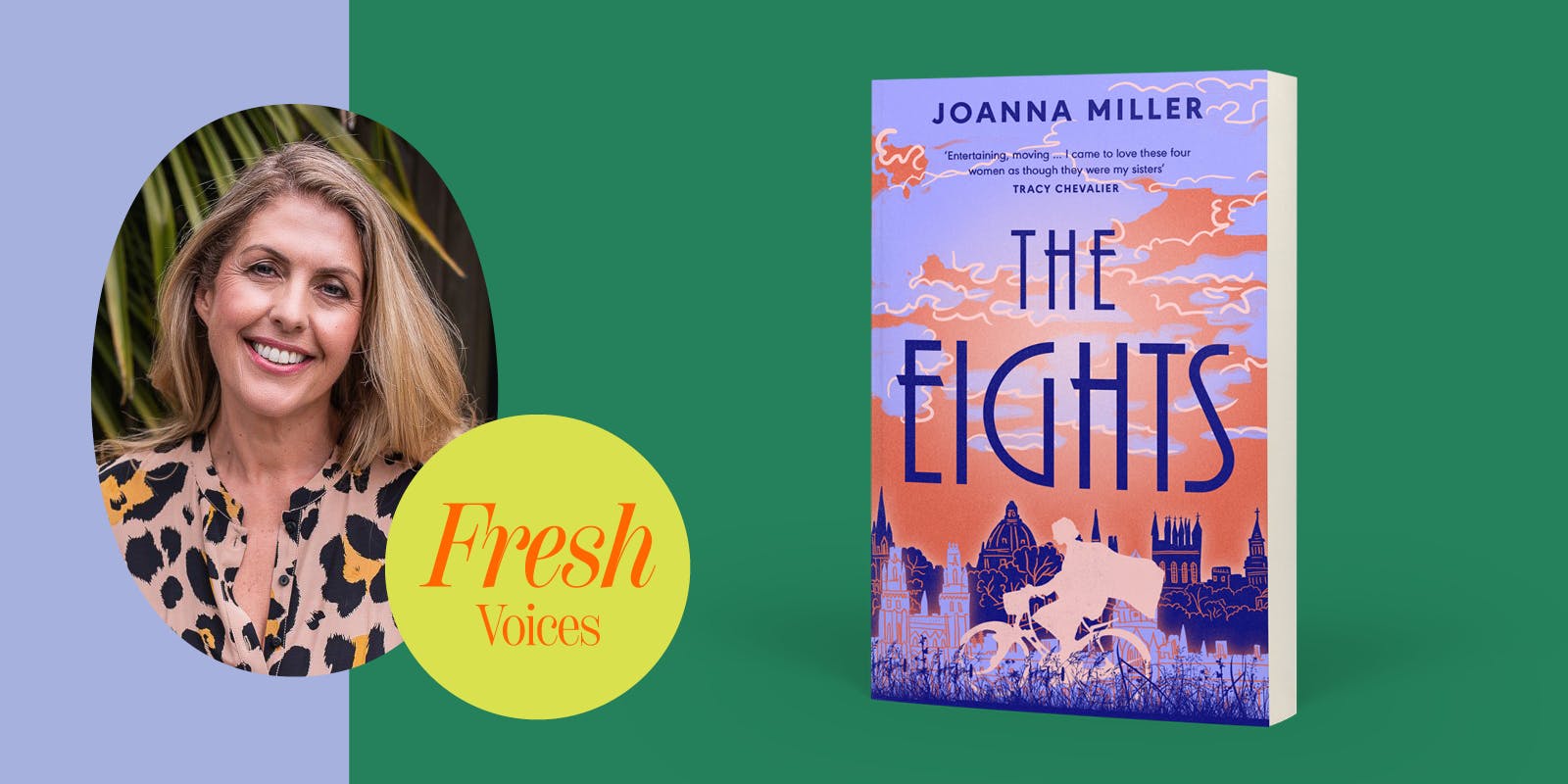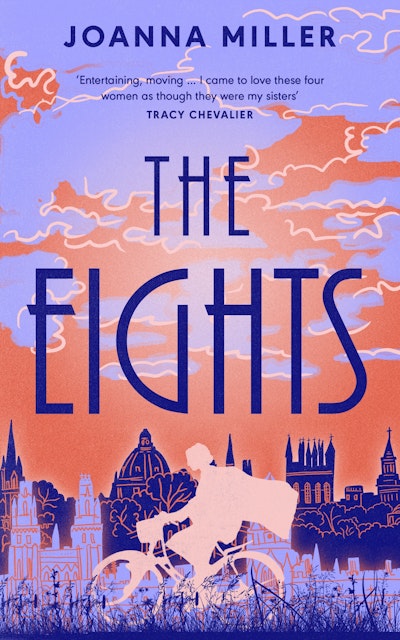The debut author of The Eights shares writing advice, insights into the publishing process and which character she enjoyed writing most.
Where did the idea for The Eights come from?
Oxford is one of my favourite cities in the world, and I am lucky enough to have studied there three times.
In 2020, the university shared a post celebrating one hundred years of women being admitted as students. The images were grainy and the faces solemn, but I instantly wanted to know who these pioneering women were, and what hurdles they had faced to get there.
At the time, I was reading a book about the cadets that lived and trained in my town during World War One. I wondered if I could combine these two ideas: what if a cadet fell in love with a local girl and encouraged her to go to Oxford?
Who was your favourite character to write?
Mathematics student Ottoline (known as Otto) was a joy to write, probably because she is the least like me!
An aristocrat and the youngest of four sisters, she is privileged, restless, flirtatious and mocking. Yet she is also vulnerable, having had a traumatic experience nursing during the war. In some ways she resembles my sister, Australian author Ali Lowe; they share a boundless energy and a ruthless wit!
Otto is obsessed with the number eight, and I had fun playing with this idea and hiding eights throughout the novel.
What kind of research did you do for the book?
I enjoyed every moment of researching The Eights, especially when I came across something fascinating that I knew would enhance the story. Social histories and memoirs were my starting point. I also spent time reading novels published in 1920 to get a feel for the language of the period.
Oxford’s Bodleian Library kindly renewed my card after thirty years, allowing me to access hundreds of documents relating to the first women students. I even stayed overnight at St Hugh’s College (where the story is set) and got to read firsthand accounts by students from the 1920s.
Are there any books/authors/artworks that influenced you writing?
It’s hard to pick just one example, but Pre-Raphaelite art plays an important role in The Eights. It brings two characters together and raises questions about the value of romanticism and idealism in a post-war world.
Two paintings which feature in the novel are The Return of the Dove to the Ark by John Everett Millais and Covent Thoughts by Charles Allston Collins. Both paintings hang in Oxford’s Ashmolean Museum and as soon as I saw them, I was smitten.
I should add that every book and piece of artwork mentioned in The Eights is carefully chosen! I hide clues to characters’ secrets in the films they watch, the murals they admire and the texts they study for their essays.
What’s your #1 tip for aspiring authors?
Don’t worry about the opening chapters being perfect, you have plenty of time to change things. Nothing is set in stone, and it is important to keep moving forward.
You don’t need to write scenes in chronological order; you can link them together later. It is better to have an incomplete first draft to polish than no draft at all!
A fact or tid-bit you think might help readers understand your book better?
I think it might help readers to know that the misogyny faced by the women in The Eights actually happened.
Oxford’s first women students were thrown out of lectures, mocked, refused entry to societies and punished for fraternising with men without chaperones. It wasn’t an easy start!
What surprised you most about the publishing process?
I was amazed by the generosity of other authors who took the time to read proof copies and provide quotes for the final book jacket. Everyone I have encountered in publishing is warm, likeable and supportive – it’s unlike any other industry I’ve known!
I recently began working part-time in an independent bookshop. It’s a great way to familiarise myself with the publishing industry, and I now understand how important hand-selling is to the success of a novel!
What advice would you give to someone who’s currently working on their own debut novel?
Don’t be afraid to reach out to other debut authors and share your experiences. I began a WhatsApp group with one contact – it now has fifty members. We share, support, advise, and most importantly, laugh. It’s a lifeline.













